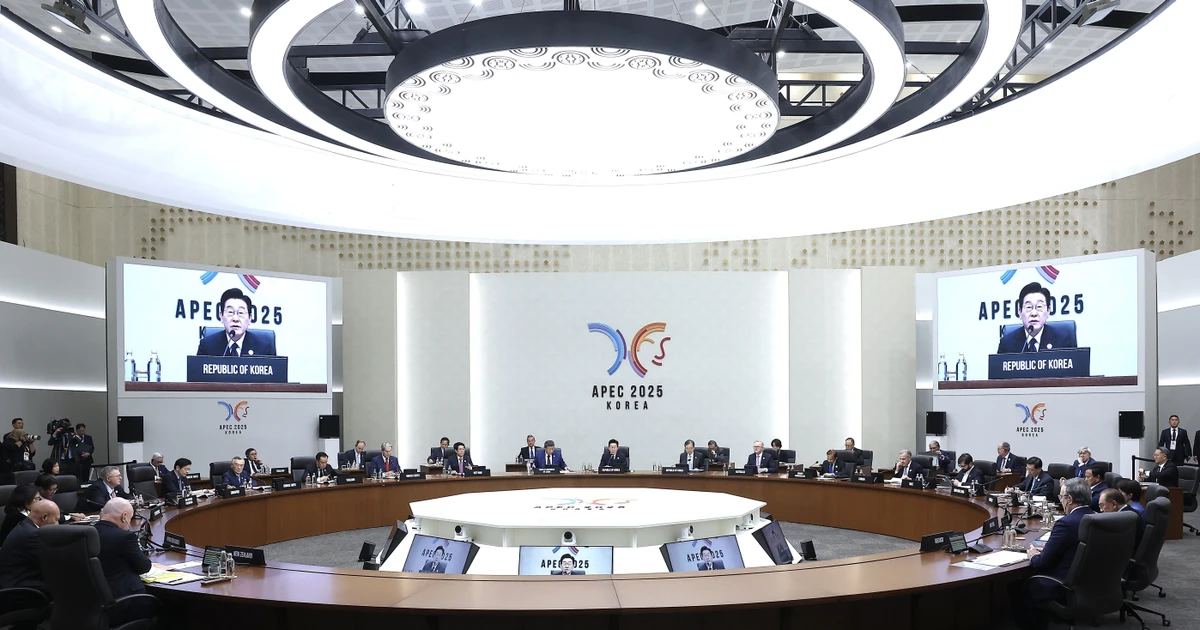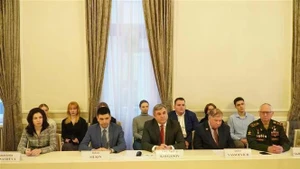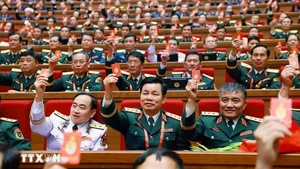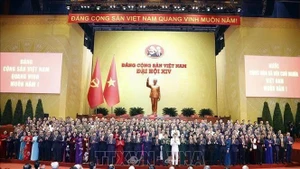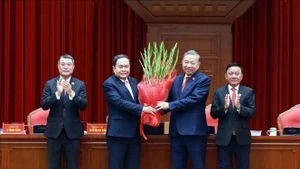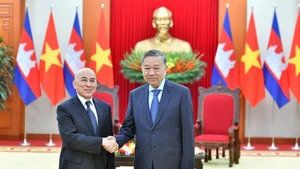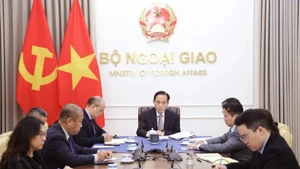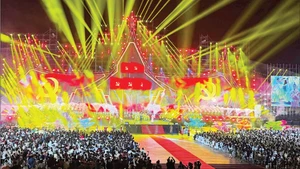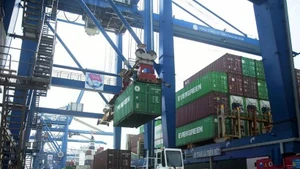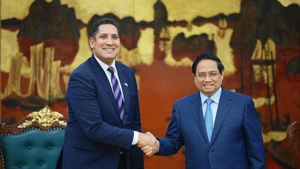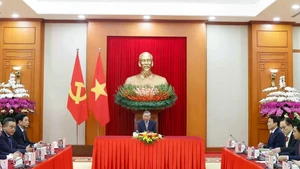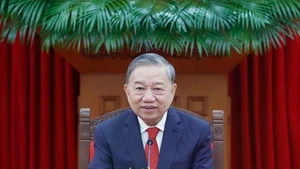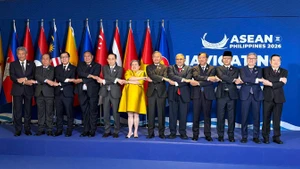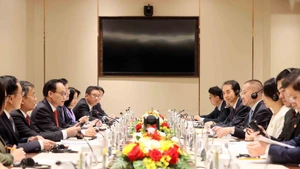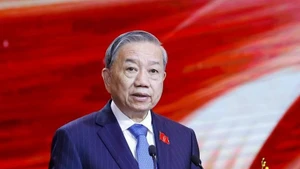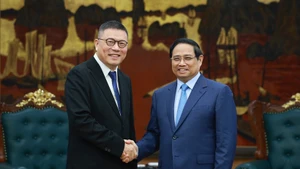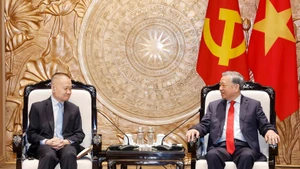State President Luong Cuong and the high-raking delegation of Viet Nam arrived in Ha Noi on November 1 evening, concluding the successful working trip for the APEC Economic Leaders’ Week 2025 in Gyeongju city, and bilateral activities in the Republic of Korea (RoK) at the invitation of RoK President Lee Jae Myung.
Talking to the media about the visit's outcomes, Hang said that the trip is a success, marked by significant achievements in both multilateral and bilateral aspects.
First, President Cuong reaffirmed Viet Nam’s consistent viewpoint on and approach to major issues facing the global and regional development future. He also put forward practical proposals and solutions so that APEC cooperation becomes increasingly substantive and effective, ensuring the forum remains responsive to fast-changing realities and brings about tangible benefits to the region and each member economy.
Viet Nam’s proactive and responsible engagement, its approach that emphasises multilateralism, international solidarity and cooperation, as well as its reality-matching proposals significantly contributed to the overall success of the week, thereby further elevating Viet Nam’s role and stature within APEC and other multilateral mechanisms.
Second, Hang went on, the President conveyed to the APEC community a clear message about Viet Nam's vision, policies, and strong determination to reform, especially its major resolutions on national development in the new era. Through his engagements during this trip, Viet Nam deeply shared its development orientations, including promoting investment attraction, and strengthening cooperation in priority areas such as digital transformation, green transition, innovation and high-quality human resource development. His speeches and messages left a strong impression on international leaders and businesses about a Viet Nam that is determined to reform, innovate, and integrate to rise in the current period of profound transformation.
Third, within the APEC Economic Leaders’ Week, President Cuong also held a series of productive bilateral meetings with leaders of the RoK and other APEC economies. His talks with the RoK President, meetings with local authorities, and exchanges with the Vietnamese community in the RoK's southeastern region helped further enhance the political trust and Comprehensive Strategic Partnership between the two countries.
Besides, the President also met leaders and heads of delegations from nearly all APEC economies, discussing measures to deepen cooperation in economy, trade, investment, science and technology, as well as emerging fields such as digital and green transitions and artificial intelligence, according to the Deputy FM.
She noted that APEC members and the business community warmly welcomed Viet Nam’s role as the host of APEC Year 2027, expressing their enthusiasm to come to Phu Quoc for the event.
This is both a great honour and a major responsibility for Viet Nam, the official said, adding that it requires Viet Nam to make every effort to ensure the success of APEC 2027, thereby contributing to the advancement of APEC cooperation and the successful implementation of the Party's Resolution No. 59 on international integration in the new context.
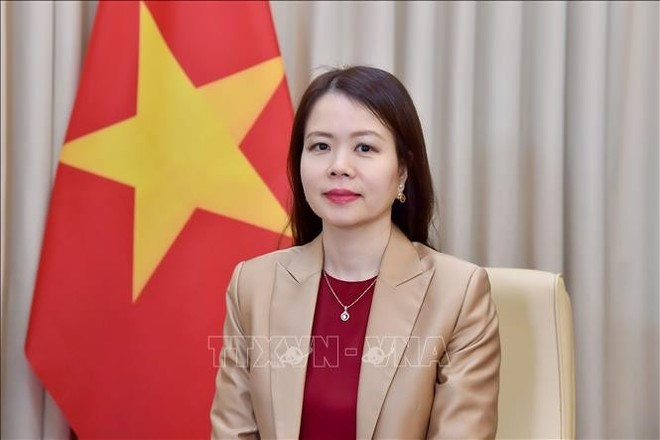
Highlighting the key outcomes of the APEC Economic Leaders’ Week 2025, Hang noted that the success of the event carried important messages for both the region and the world.
It underscored the importance of maintaining economic cooperation and connectivity, and enhancing the resilience of APEC member economies. Amid challenges to multilateral trade and rising protectionism and fragmentation, APEC economies’ leaders gathered for constructive dialogue to discuss measures for promoting trade, investment, and economic connectivity.
The week reaffirmed the commitment to upholding multilateralism, dialogue, and cooperation for peace, stability, and development, she continued, adding the meetings of APEC leaders also contributed to strengthening the trust of the people and the business community in a shared future of overcoming differences and growing together for sustainability and common prosperity.
The event also called for stronger cooperation in emerging fields to foster breakthrough development. Leaders discussed pressing issues and strategic trends shaping the future of the world and the region, including scientific and technological advances, sustainable energy transition, and demographic challenges.
Notably, Hang said, digital transformation and artificial intelligence (AI) were overarching topics throughout this year’s meetings – not only among leaders but also across businesses’ forums and public – private dialogues. This highlighted APEC’s pioneering role in shaping and guiding the digital era’s changes and in creating a future of sustainable and inclusive development.
The event also underscored the importance of public – private cooperation and the mobilisation of all social resources to support development goals and growth model transformation in member economies.
According to the official, the APEC Economic Leaders’ Week 2025 brought together nearly 2,000 regional business leaders for dialogues, a CEO summit, and business-to-business networking sessions, offering them opportunities to share visions and development strategies, and propose practical initiatives on green transition, digital transformation, workforce development, and enhancement of supply chains’ resilience.
The business community’s active participation has helped APEC remain a dynamic and practical forum—where ideas from the private sector are heard and translated into actionable policies, Hang said.
